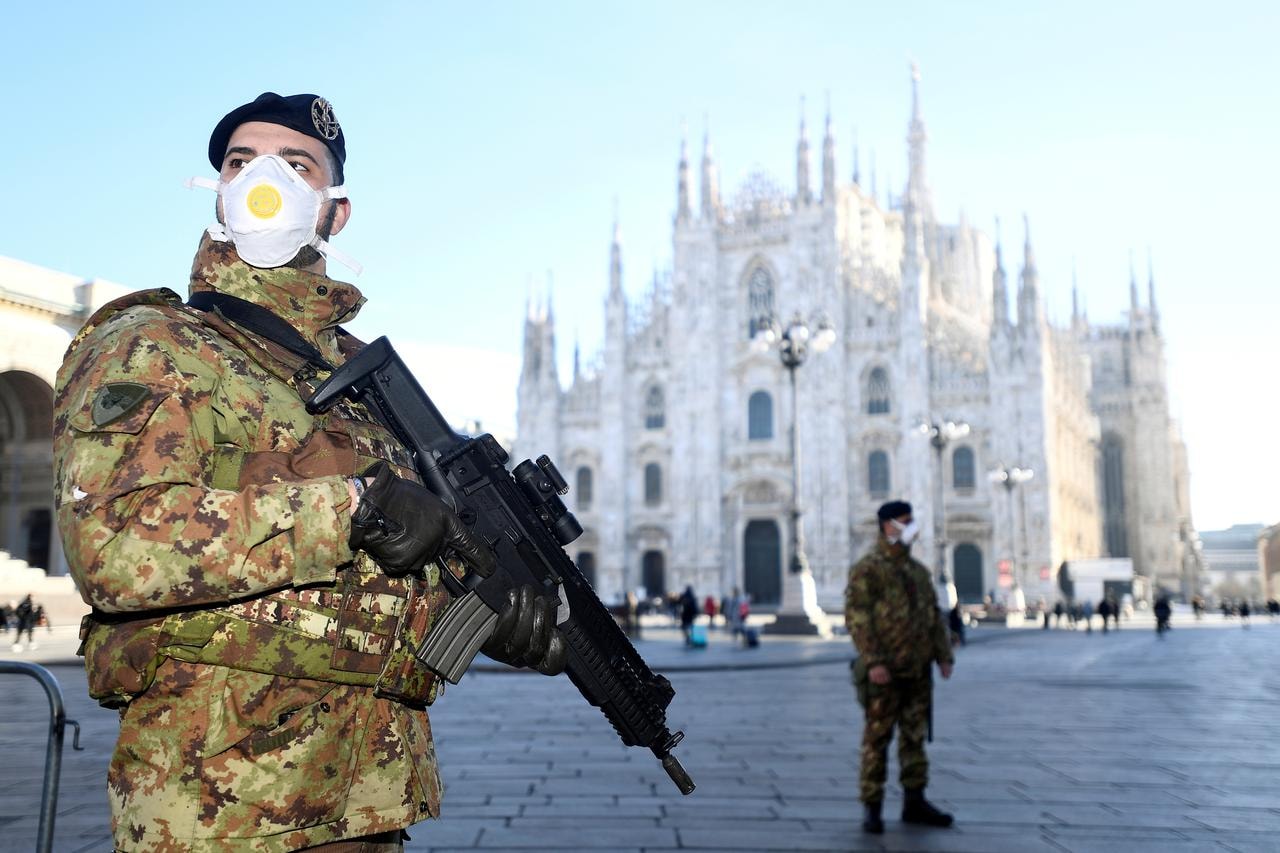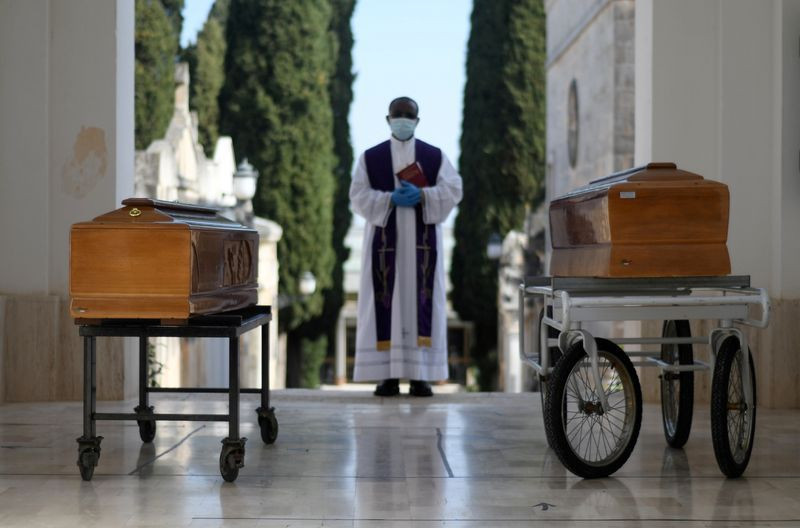Europe Enters Covid-19 Crisis Like a Sleepwalker
(Baonghean.vn) - EU documents show that less than a month before Europe began scrambling for masks, ventilators and test kits to fight the coronavirus, governments told Brussels that their health care systems were ready and there was no need to order more.
Subjective or overconfident?
That rosy outlook contrasted with the shortage of masks and medical equipment that followed just weeks later, when the European Commission estimated that demand across the European Union was 10 times higher than normal.
 |
| Military personnel wearing face masks stand outside the Duomo cathedral, closed due to the Covid-19 pandemic in Milan, Italy on February 24. Photo: Reuters. |
While the equipment shortage is largely due to rapid global demand, internal and public documents seen by Reuters show that EU governments may have made matters worse by overestimating their own response capabilities.
According to the meeting minutes, after receiving statements from the delegations, an EU official affirmed: “In member states with a strong level of preparedness, most have response measures in place.”
That was just two weeks before the first coronavirus victims emerged in Italy, where 12,428 people have died from Covid-19, about four times the death toll in China, where the disease first emerged.
Asked whether the documents seen by Reuters showed Europe's response had been too slow, a spokesman for the EU executive said: "Since January, the European Commission has been offering the possibility of helping member states."
EU governments began to realize the seriousness of the situation in March, but instead of focusing on collective action, many countries opted for protectionist measures, raising trade barriers, and hindering the export of medical equipment to neighboring countries.
Italy still has only a fraction of the 90 million masks its health workers need each month, France ordered more than 1 billion masks last week and manufacturers are converting production lines to make ventilators.
 |
| The coffins of two patients who died from Covid-19 at a memorial service in a small town in Italy on March 30. Photo: Reuters |
“Available capacity”?
The optimistic analysis that the EC official gave on February 5 stemmed from a series of meetings with health experts from EU member states. At a meeting on January 31, delegates from national health ministries told the EC that they would not help to obtain medical equipment, according to minutes.
The minutes show that only four unnamed countries warned they might need protective equipment if the situation worsened in Europe, and “no country has requested support for additional response measures”.
On February 28, a month after first offering help, and after urging governments to clarify their needs in at least two more meetings, the Commission launched a joint procurement program for masks and other protective equipment.
The initial invitation to tender on behalf of 25 member states did not receive any offers. EU member states are now evaluating bids in the second invitation to tender but no contracts have yet been signed and deliveries are still weeks away, according to EC estimates.
EU governments have assured Brussels that their health workers are fully informed about how to treat Covid-19 patients, but Italy only required medical staff to wear masks when dealing with suspected cases from February 24.
According to official figures, nearly 10,000 Italian medical workers have been infected, accounting for more than 9% of positive cases in Italy.
“Diagnostic capacity is available and some countries have already started testing,” national health experts said at an EU meeting on February 4. But EU countries are now facing a major shortage of test kits and launched a collective procurement scheme on March 18.
The risk of health systems being overwhelmed was once assessed as “low to moderate” by the EU’s disease control agencies, based on assessments by individual member states. A month later, they changed that assessment, saying that by mid-April, no country had enough intensive care beds.
